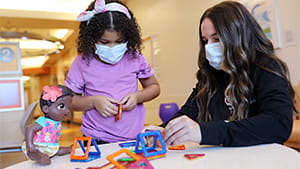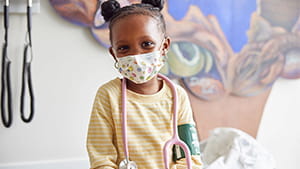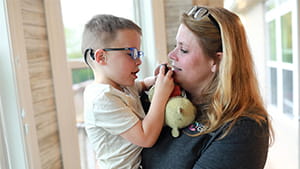School Services at a Glance
Due to their medical complexities, children who experience chronic and mental health care needs are more at risk for educational difficulties.
The Center for School Services partners with schools and medical teams to support families and patients with their educational needs through:
- Collaboration between school systems, patients/families and medical providers
- Coordination of resources for enhanced navigation of education and healthcare systems
- Care for school aged youth at Cincinnati Children's utilizing proactive educational interventions











